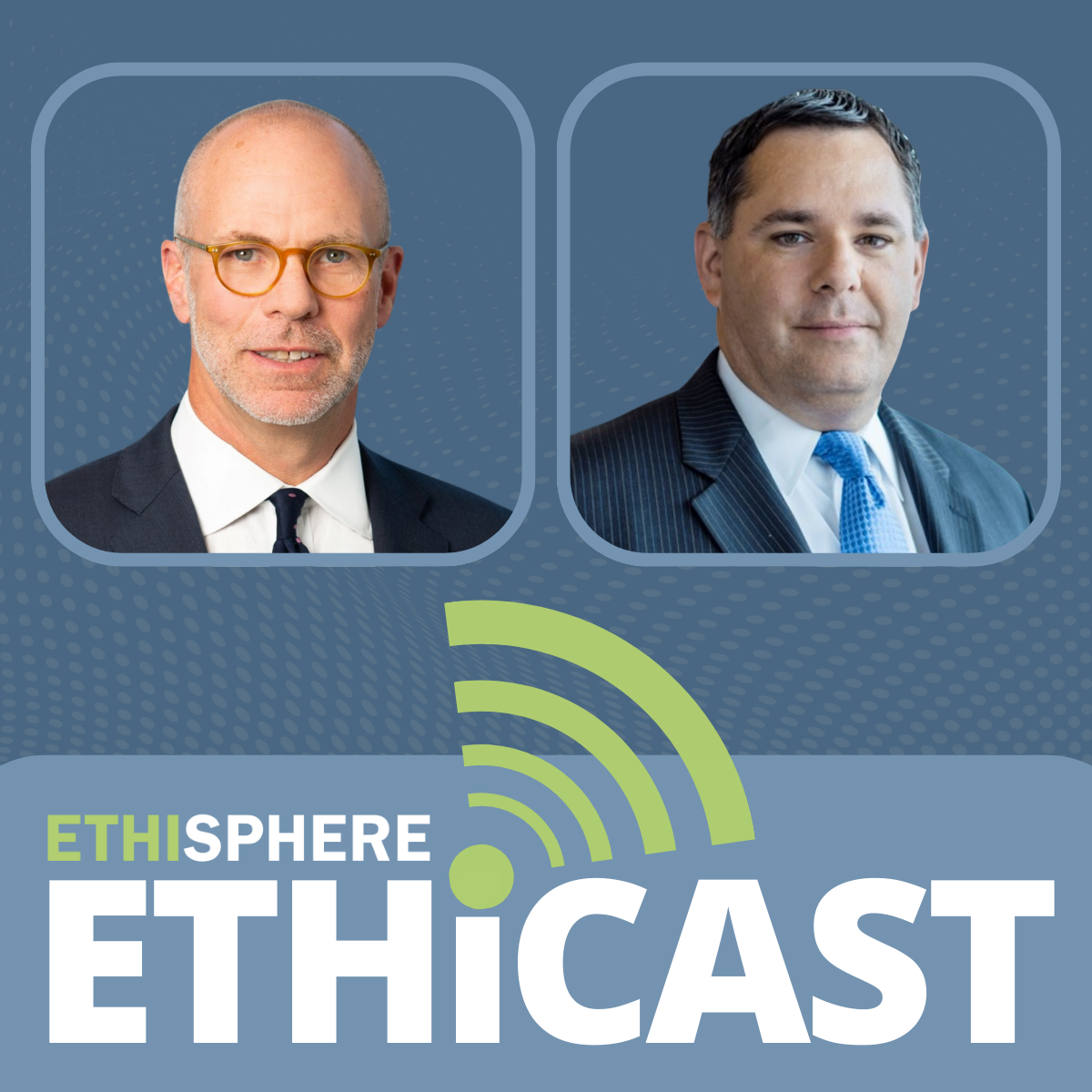[00:00:00] Speaker A: Hi, everyone. The Business Ethics Leadership alliance has questions and we have answers. I'm your host, Bill Coffin. Welcome to another Bella Asks episode of the Ethicast.
The Business Ethics Leadership alliance, or bela, is a global ethics and compliance community that provides exclusive access to helpful data, program benchmarking, roundtable events, and a resource library with hundreds of policy guidance documents, member contributed program examples, and more. But one of the most popular aspects of BELLA membership is our concierge service in which members can submit any question at all regarding ethics and compliance, and our internal experts will provide an answer and helpful resources with further information. And while we invite everyone watching and listening to join bella, we also know that there's no competition in compliance, which is why we're using this program to thematically respond to high level questions from the Bella community for the benefit of ENC teams everywhere. Joining us once again to answer those questions is Bella chair Erica Salmon Byrne. Erica, it is so good to see you again. Thank you for joining us.
[00:01:11] Speaker B: Absolutely. It's 100% my pleasure. As longtime listeners of the @ the Cast know, I am always happy to come back and answer more questions from our Bella community.
[00:01:19] Speaker A: Our next question is a speak up question and it reads, how do I substantiate a claim of retaliation?
[00:01:26] Speaker B: It's a great question because we know that fear of retaliation is one of the top two reasons that employees don't raise a concern.
The question itself, the good news is that you substantiate a claim of retaliation very similarly to the way you substantiate any other kind of issue that might be brought to the attention of the compliance team. So often what ends up happening because of the gap between what an organization has trained managers on around retaliation and what employees experience as a form of retaliation, there can be a gap there. So we often, when we hear from employees who say they've experienced retaliation, it's some of the softer forms that are listed in the EU whistleblower directive as examples of retaliatory behavior. So it is. I got pulled off the good projects. I stopped getting invited to meetings. People started looking at me funny. Right. Those are the kinds of things that we traditionally hear from employees that they are concerned about when it comes to a retaliation claim. So, you know, some of those can be a little hard to investigate, particularly people are looking at me funny. But conversations with managers, with coworkers can kind of give you a sense as to whether or not people have been giving somebody who raised a concern a wide berth in, in a fashion that would cause concern to the organization. So so utilize your existing investigation protocols and be grateful that you even have a claim of retaliation to investigate in the first place. Because when we talk to compliance teams, it is one of the things that rarely gets reported, in part because people are nervous already. Right. So I raised a concern. Now people appear to be retaliating against me. Well, I'm certainly not going to raise a concern again because I'm just going to make my situation worse. So more often than not, Bill, the way that these kinds of claims of retaliation end up coming up is they come up because of a proactive follow up from the compliance team. So another thing I want to highlight with this particular question is that practice of proactive follow up, that is how you're going to find out if there are corrosive behaviors that are happening that are going to undermine or erode your culture, your speak up culture in a given part of the business. So really thinking about how do I follow up with known reporters, how do I follow up with witnesses, how do I make sure that there is nothing happening in the organization that is going to undermine people's willingness to tell me that they have questions or concerns? Because again, as I said, more often than not, somebody's not going to, of their own volition, tell you they're being retaliated against because they're already afraid of experiencing retaliation.
[00:04:00] Speaker A: Now, Erica, I can imagine the answer you're going to give me to the question I'm about to hit you with, but I'm going to ask you this question anyway. Do you mind if I hit you with a follow up question, Bill?
[00:04:08] Speaker B: Again, I never mind you hitting me with a follow up question. Follow up questions are fantastic. Go for it.
[00:04:16] Speaker A: Well, this is a really good one in part because to be fair, this is actually a separate question from a different Bella member. But it ties so closely to what you just talked about. I thought I'd fold it in and the question is, can a hotline be used to retaliate against someone?
[00:04:31] Speaker B: Yeah, this is a, this is a really interesting question that came in, Bill. And, and it was a, it, it took me back for a minute to the early days of ethics and compliance programs being kind of broadly set up across organizations. So, you know, we're talking kind of early 2000s now, and there was something that I came across at that point that I know still happens inside a lot of organizations, particularly organizations with substantial workforces that are looking for ways to, to address grievances with managers and leaders. And at the time I was working with a utility company that had a Very substantial represented workforce. And they were having a problem with what at the time they called. And what I learned has been continued to be called the practice of hotlining, which is basically a mad at my manager. I think my supervisor is a jerk. I'm not going to go through the normal grievance procedures because I have this new thing that's available to me to raise concerns directly to the companies. This, of course, was sort of post Sarmade's Oxley when companies were setting up hotlines. So I'm going to call the hotline instead and complain about the behavior of my manager. The reason why, if you look at any code of conduct today, you see a note in there about good faith, right? We will not allow retaliation against someone who has brought a concern forward in good faith. And that kind of behavior of hotlining, right? Calling the hotline to complain about a manager in a scurrilous fashion, that is not good faith. And so, you know, yes, we absolutely see it. We see the practice of hotlining continue. We see employees calling and sort of, you know, making knowingly false reports about individuals that they have some sort of a grievance with. And, you know, it is something that compliance teams have to root out. And my recommendation when we see it happening for companies is you have to tell the story of why this is wrong. You have to communicate using, you know, real fact patterns anonymized to protect the innocent about this kind of behavior, because it is definitely something that people are inclined to do.
[00:06:37] Speaker A: Well, Erica, as always, we appreciate you weighing in on these questions for the Bella community. Thank you so much for coming on and sharing your time with us today.
[00:06:43] Speaker B: Oh, Bill, absolutely. My pleasure. And all those Bella members out there listening, keep the questions coming.
[00:06:48] Speaker A: To learn more about Bella, please Visit@the sphere.com Bella to request guest access to the member resource hub and to speak with the Bella engagement director. And if you have a question that you would like answered on this program, contact the Bella Concierge service and we'll get to work on it for you. I'm Bill Coffin, and this has been another Bella Asks episode of the Ethicast. If this is your first time listening, we hope you've enjoyed the show. For more content like this every week, please subscribe here on YouTube, Apple Podcasts or Spotify. You can also get our free weekly
[email protected] ethicast and we've got plenty more content for
[email protected] resources. Thanks so much for joining us. And until next time, remember, strong ethics is good business.


